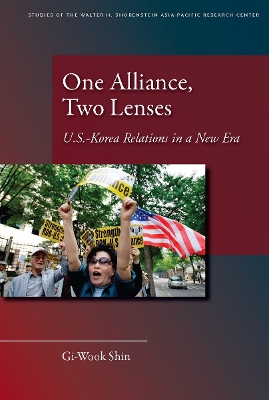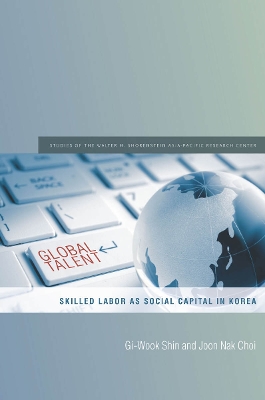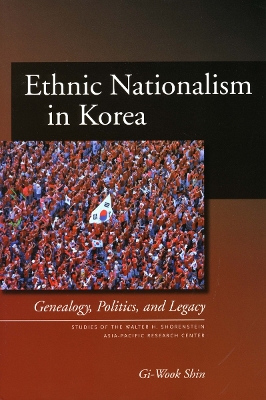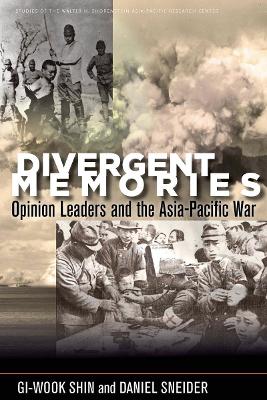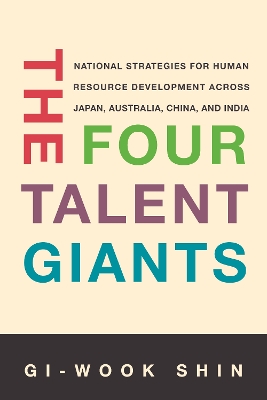Studies of the Walter H. Shorenstein Asia-Pacific Research Center
5 total works
One Alliance, Two Lenses examines U.S.-Korea relations in a short but dramatic period (1992-2003) that witnessed the end of the Cold War, South Korea's full democratization, inter-Korean engagement, two nuclear crises, and the start of the U.S. war on terror. These events have led to a new era of challenges and opportunities for U.S.-South Korea (ROK) relations.
Based on analysis of newly collected data from major American and Korean newspapers, this book argues that the two allies have developed different lenses through which they view their relationship. Shin argues that U.S.-ROK relations, linked to the issue of national identity for Koreans, are largely treated as a matter of policy for Americans-a difference stemming from each nation's relative power and role in the international system.
Offering rich empirical data and analysis of a critically important bilateral relationship, Shin also presents policy suggestions to improve a relationship, which-after 50 years-has come under more sustained and serious criticism than ever before.
Global Talent seeks to examine the utility of skilled foreigners beyond their human capital value by focusing on their social capital potential, especially their role as transnational bridges between host and home countries. Gi-Wook Shin and Joon Nak Choi build on an emerging stream of research that conceptualizes global labor mobility as a positive-sum game in which countries and businesses benefit from building ties across geographic space, rather than the zero-sum game implied by the "global war for talent" and "brain drain" metaphors.
The book empirically demonstrates its thesis by examination of the case of Korea: a state archetypical of those that have been embracing economic globalization while facing a demographic crisis—and one where the dominant narrative on the recruitment of skilled foreigners is largely negative. It reveals the unique benefits that foreign students and professionals can provide to Korea, by enhancing Korean firms' competitiveness in the global marketplace and by generating new jobs for Korean citizens rather than taking them away. As this research and its key findings are relevant to other advanced societies that seek to utilize skilled foreigners for economic development, the arguments made in this book offer insights that extend well beyond the Korean experience.
This book explains the roots, politics, and legacy of Korean ethnic nationalism, which is based on the sense of a shared bloodline and ancestry. Belief in a racially distinct and ethnically homogeneous nation is widely shared on both sides of the Korean peninsula, although some scholars believe it is a myth with little historical basis. Finding both positions problematic and treating identity formation as a social and historical construct that has crucial behavioral consequences, this book examines how such a blood-based notion has become a dominant source of Korean identity, overriding other forms of identity in the modern era. It also looks at how the politics of national identity have played out in various contexts in Korea: semicolonialism, civil war, authoritarian politics, democratization, territorial division, and globalization.
No nation is free from the charge that it has a less-than-complete view of the past. History is not simply about recording past events-it is often contested, negotiated, and reshaped over time. Debate over the history of World War II in Asia remains surprisingly intense, and Divergent Memories examines the opinions of powerful individuals to pinpoint the sources of conflict: from Japanese colonialism in Korea and atrocities in China to the American decision to use atomic weapons against Japan.
Rather than labeling others' views as "distorted" or ignoring dissenting voices to create a monolithic historical account, Gi-Wook Shin and Daniel Sneider pursue a more fruitful approach: analyzing how historical memory has developed, been formulated, and even been challenged in each country. By identifying key factors responsible for these differences, Divergent Memories provides the tools for readers to both approach their own national histories with reflection and to be more understanding of others.
The Asia-Pacific region has seen extraordinary economic achievements. Japan's post-World War II transformation into an economic powerhouse challenging US dominance by the late 1980s was miraculous. China's rise as the world's second-largest economy is one of the 21st century's most stunning stories. India, now a top-five economy by GDP, is rapidly ascending. Despite its small population, Australia ranked among the top ten GDP nations in 1960 and has remained resilient. While cultivating, attracting, and leveraging talent has been crucial to growth in these countries, their approaches have varied widely, reflecting significant cultural, historical, and institutional differences.
In this sweeping analysis of talent development strategies, Gi-Wook Shin investigates how these four "talent giants'' achieved economic power and sustained momentum by responding to risks and challenges such as demographic crises, brain drain, and geopolitical tensions. This book offers invaluable insights for policymakers and is essential for scholars, students, and readers interested in understanding the dynamics of talent and economic growth in the Asia-Pacific region and beyond.
